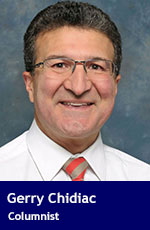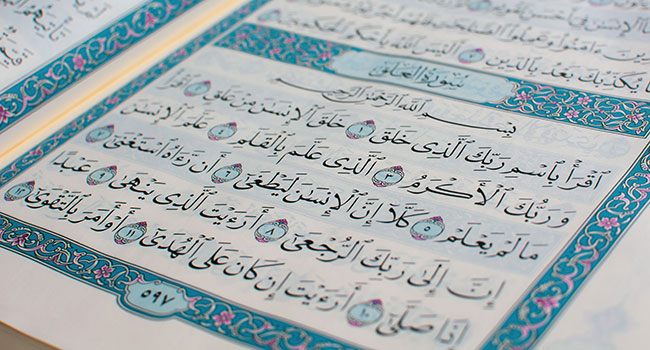 It’s disturbing to learn that someone in the same profession was murdered while walking home from work. Samuel Paty, who taught a curriculum similar to mine, was beheaded by an extremist outside of Paris on Oct. 16.
It’s disturbing to learn that someone in the same profession was murdered while walking home from work. Samuel Paty, who taught a curriculum similar to mine, was beheaded by an extremist outside of Paris on Oct. 16.
Paty presented material in previous weeks as part of a study of freedom of speech that some found objectionable.
Though the crime was committed by someone who claimed to be Muslim, it’s important to note that this act of violence has been condemned by the vast majority of followers of Islam, including the Muslim World League.
The murderer was an extremist, and extremists have more in common with other extremists than they do with any religion. Extremists believe in intolerance and Paty was seen as a threat because he tried to broaden his students’ perspectives.
It has been quite moving to see the sadness over the death of Paty, along with the strong reiteration of democratic values demonstrated in France and around the world.
Closed secularism breeds intolerance by David Hunt and Brian Dijkema
French President Emmanuel Macron made the most beautiful speech about teachers I’ve ever heard given by a head of state, just hours after Paty’s death. He said he and the people of France will defend and protect those who practise my profession, recognizing that we work with great devotion every day to develop free citizens, regardless of what they choose to believe or not believe.
It has become clear that the French not only value liberty, equality and fraternity, they also cherish laïcité, loosely translated as secularization. At first this struck me as strange, until I reflected on the roots of the value. It’s the response of liberated people to the religious oppression of a Catholic Church that allied itself very strongly with unjust governments.
I then thought about the place of secularization in my life. I spent most of my education and the early part of my teaching career in Catholic schools. I still embrace the ideals proclaimed in Vatican II and post-Vatican II documents. They promote a “preferential option for the poor” and proclaim that every person on Earth is a sacred child of God, worthy of being treated with dignity, regardless of their ethnicity, nationality, religion or any other classification.
The problem is that the Catholic Church doesn’t always live up to these ideals and I found it difficult to challenge its hierarchy to be authentic. I felt very liberated when I began teaching in the secularized public education system.
The beauty of secularism is that it allows us to be honest in our quest for truth. No religion or philosophy holds a monopoly on the meaning of life. When we dig deep, we see the same vein of lifegiving principles flowing through all of them. Yet none is perfect in the practise of these principles.
When studying the topic of human rights, for example, I have no problem pointing out that decades of lobbying efforts by American Catholics resulted in their government withdrawing military aid to Indonesia, finally ending the genocide in East Timor.
I also note the cowardice of the Catholic hierarchy, who said nothing in Rwanda when their influence could have prevented genocide. And I point out how the Catholic Church in Quebec was deafeningly silent during the Oka Crisis in 1990, despite their strong presence and high ideals.
There’s no perfect religion or philosophy of life, just as there’s no perfect person or perfect government. It’s in constant questioning and in the constant quest for truth that the way forward for the betterment of all humanity becomes clear.
Samuel Paty didn’t deserve his fate. May we always remember him as we strive to embrace the ideals he cherished: liberté, egalité, fraternité et laïcité.
Troy Media columnist Gerry Chidiac is an award-winning high school teacher specializing in languages, genocide studies and work with at-risk students. For author image and contact info, click here. You must be an accredited member of the media to access our Sourcebook.
The views, opinions and positions expressed by columnists and contributors are the author’s alone. They do not inherently or expressly reflect the views, opinions and/or positions of our publication.


